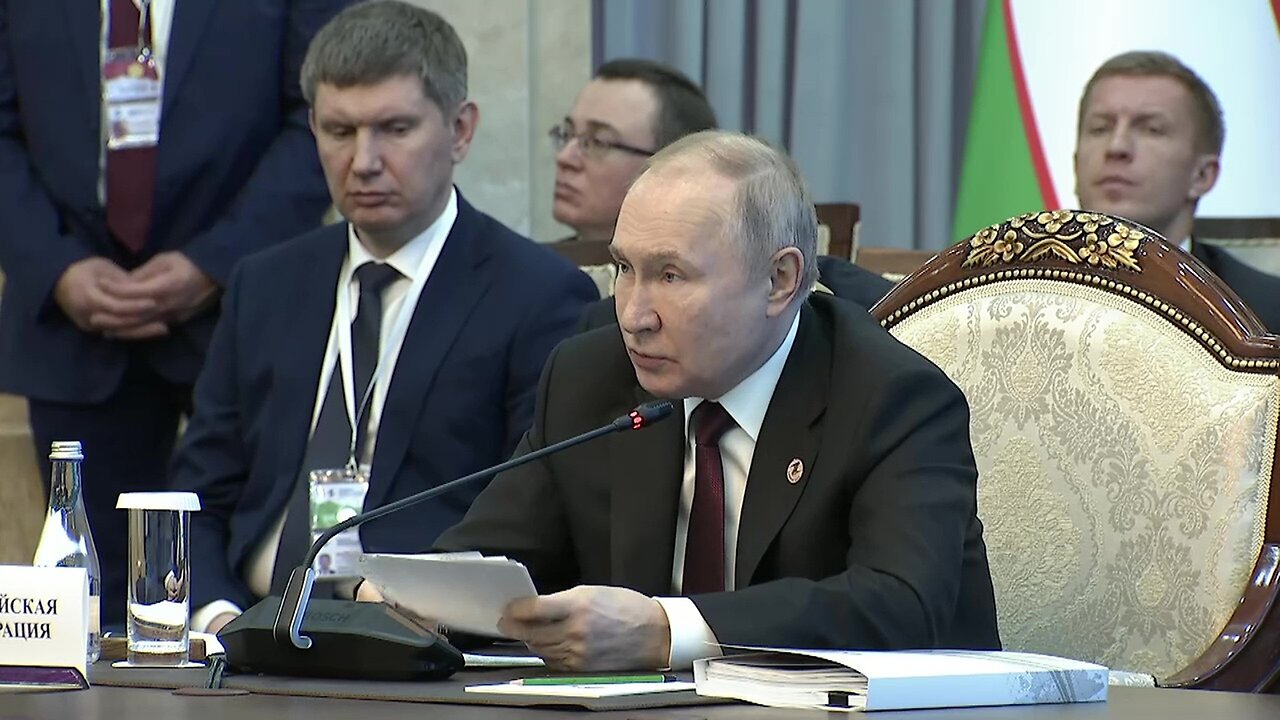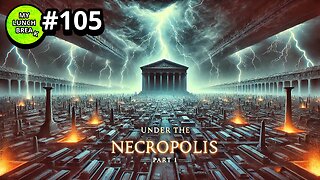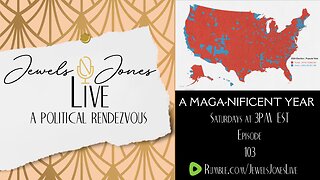Premium Only Content

Pres. Putin. Meeting of Supreme Eurasian Economic Council, Bishkek Video & transcript
Meeting of the Supreme Eurasian Economic Council
Vladimir Putin took part in a meeting of the Supreme Eurasian Economic Council in Bishkek.
Prime Minister of Armenia Nikol Pashinyan, President of Belarus Alexander Lukashenko, President of Kazakhstan Kassym-Jomart Tokayev, President of Kyrgyzstan Sadyr Japarov, and Chairman of the Eurasian Economic Commission Board Mikhail Myasnikovich also took part in the restricted attendance meeting.
The talks in an expanded format were joined by Prime Minister of Uzbekistan Abdulla Aripov as the head of the delegation of an EAEU observer state and Chairman of the Executive Committee – Executive Secretary of the Commonwealth of Independent States Sergei Lebedev.
Head of an EAEU observer state and President of the Republic of Cuba Miguel Diaz-Canel Bermudez addressed the participants via videoconference.
Following the meeting, a package of documents was signed. In particular, the participants adopted the Protocol on Amendments to the Treaty on the Eurasian Economic Union dated May 29, 2014, concerning the procedure for collecting indirect taxes for e-services, as well as a decision to start talks with the United Arab Emirates on concluding an agreement on free trade, and a decision on the main international activities of the EAEU for 2023. In addition, decisions were made to continue the creation of a single market of services within the EAEU.
The meeting participants also adopted an instruction “On the sources and mechanisms for financing industrial cooperation projects within the Eurasian Economic Union.”
The discussion was focused on the EAEU activities, prospects for the further deepening of integration processes, in particular improving the operation of the single market for goods and services.
The Kyrgyz Republic is presiding in the Eurasian Economic Union in 2022. Next year, the Russian Federation will take over the rotating EAEU chairmanship.
In addition, during the Russian President’s visit to Kyrgyzstan, Vladimir Putin and Sadyr Japarov adopted a Joint Statement on Cooperation on International Information Security.
* * *
Remarks at the expanded format meeting of the Supreme Eurasian Economic Council
President of Russia Vladimir Putin: First of all, I would like to join the words of gratitude addressed to the President of Kyrgyzstan and thank all our Kyrgyzstani friends for the work they have done during their EAEU chairmanship.
This year, our integration association has performed effectively and continued to grow steadily. In the context of volatile global markets and an unfavourable global political situation, the EAEU has taken timely and effective steps to not only stabilise the macroeconomic situation in our countries, but also to improve a number of important development indicators, stimulate growth in key economic sectors, and support the economic ties that have developed within the EAEU.
In particular, the unemployment rate for the first nine months of 2022 in the EAEU states decreased very noticeably – by 18 percent – and is slightly above one percent, 1.1 percent of the workforce. I would like my colleagues to note that the unemployment rate is one of the key indicators of the general state of the economy. By the way, unemployment in the European Union is 7 percent, that is, seven times higher.
Agricultural production rose 5.4 percent, which is a very noticeable and very good growth. This is all the more important – our colleagues have already mentioned this, Mr Lukashenko said this – amid the growing food crisis in the world, which is certainly unfortunate. Mr Pashinyan also pointed out that we have coordinated our indicative balances, that is, we have absolutely aligned all our needs. A 5.4 percent growth in the modern conditions is a very good indicator.
The amount of construction has grown by as much as 4.7 percent. This is also a very good indicator, considering that construction drives a lot of other industries. The total increase in investment in fixed assets reached 6.6 percent, which is also very good.
I must say that we keep other macroeconomic indicators, including inflation, within reasonable limits. Mr Tokayev said inflation is spiralling around the world, and this process is rocking the global economy. But we have been keeping inflation under control. For example, Russia will run a budget deficit of 2 percent this year; next year we are also projecting 2 percent, then 1.4 percent in 2024, and as low as 0.7 percent in 2025. I am certain that we will be able to achieve that.
As for inflation, it is also going to be acceptable this year, by the way – 12.2 percent. Next year we expect – by the end of the next quarter [in 2023] – to approach 5 percent, and maybe even lower. There is an obvious downward trend. This is important for each of our countries, because macroeconomic indicators in the Russian economy affect the economies of all our countries in one way or another.
We know that the eurozone countries are seeing the highest inflation rates of the past 30–40 years, all in the double digits, and some EU countries have reached sky-high values for the European economy: 20 percent or more.
By the way, regarding economic development as a whole, we were predicted to experience a 20 percent decline in the economy: the decline this year will be 2.9 percent. Next year, we expect 0.9 and will continue to move in the positive direction.
Uninterrupted trade in all vital goods in the EAEU has been ensured, by the way, including, as I have already said, food, and also energy. In this regard, of course, I cannot fail to note that the tariffs, the prices for energy sources in the EAEU countries are fundamentally different from the corresponding tariffs for our neighbours in the West. For example, the difference in gas prices in the countries of the EAEU and the European Union is tenfold or more: not in percentages, but ten or more times. This, of course, creates appropriate conditions for economic development in our zone.
This year, the EAEU has adopted a number of fundamental decisions aimed at removing the remaining customs and administrative barriers. I cannot but agree with Mr Lukashenko when he says that we need to work more effectively to remove these barriers; this is true. They interfere with free trade between our countries, and we must work harder on this.
Meanwhile, work has accelerated in the transition to national currencies in mutual settlements. Here, Mr Lukashenko is also right. The process of creating a common payment infrastructure and integrating national systems for the transmission of financial information has begun.
The five states are closely cooperating in the field of transport and logistics; the volume of mutual freight transport is growing, thanks largely to the additional arrangement and the increase in the capacity of border crossings between our countries. Although here, of course, there is still work to be done.
The EAEU is carrying out a number of integration infrastructure projects aimed at creating and effectively using the East-West and North-South international transport corridors. I also want to note that many countries are showing their interest and want to join these projects, including investing in this work together with us.
I would like to note that the member states of the Union continue to successfully develop mutually beneficial industrial cooperation. Today we are adopting a decision to establish a new specialised industry financing mechanism in the EAEU. This mechanism will make it possible to grant loans and subsidies to promising joint projects, including those related to setting up import substation-oriented production facilities.
Cooperation in energy is developing ever more actively. Following today’s meeting, a decision will be made to establish a council of heads of authorised bodies of the EAEU states in energy. At the restricted meeting today, we had an honest and constructive discussion, and I think that there is mutual understanding; we will definitely continue to implement all of our plans.
Russia, naturally, supports the creation of the coordinating structure that I just mentioned, which will professionally deal with the issues related to providing national economies with key energy sources and creating common energy markets in the Union on a long-term basis. We have relevant plans, and we will strive to implement them.
Colleagues,
As you already noted, Russia will assume the chairmanship the Eurasian Economic Union. Let me give you a broad summary of what we consider to be our future priorities.
First of all, we consider it necessary to update the strategic benchmarks of EAEU development. The current basic document, Development Areas of Economic Integration, covers the period until 2025, and it is important to begin drafting new strategic planning documents that chart the main goals for further integration and interaction in the medium and long term.
We believe that one such area should be strengthening the technological sovereignty of the EAEU member states and creating a common foundation for innovation in key sectors including industry and agriculture. We have already discussed that at the restricted format meeting, and I want to note what the President of Belarus said. Our cooperation is developing at a good pace; some positive results have been achieved in certain key areas of interaction as of late. I am sure that this success will be seen overall in the organisation.
It is also advisable to continue efforts to jointly introduce information technologies, including in electronic document flow, the automated exchange of transport and customs information between the agencies and carriers of the member states, as well in product labelling and traceability. These are the areas where digital solutions already have been helping to prevent the turnover of unsafe and substandard products on the Union’s market.
We also suggest that the Five should concentrate on building up investment cooperation, creating favourable conditions for mutual investment, simplifying relevant administrative procedures and enhancing guarantees for protecting the rights of investors. We believe that the simultaneous introduction of advanced tax control mechanisms for aligning tax regulations in the EAEU should be an integral element of this work.
Naturally, during our chairmanship, we intend to expand scientific, technical and educational contacts. We suggest our colleagues think about new ideas and initiatives to encourage the practice of inter-university cooperation and upgrade the practical training and academic exchange programmes. We consider it useful to involve more young specialists in the integration agenda via student tourism programmes, the promotion of common historical, social and ethical values, and support for joint youth projects in entrepreneurship, volunteering, culture and sports.
As all of you emphasised more than once, the Eurasian Economic Union and our integration work in general are attracting the attention of more and more international players, and many foreign states are interested in developing ties with our association. I will not repeat everything now but will just say that I fully agree with the proposals of our colleagues to expand this work, including with regional structures, such as the SCO and ASEAN.
Russia welcomes the invigoration of the EAEU’s international business ties and contacts. It will help further expand the range of preferential and non-preferential agreements with foreign partners.
In conclusion, I would like to express my confidence in that next year the EAEU member states will continue their constructive close cooperation, following the example of the Kyrgyz chairmanship.
We will be happy to see you at the next regular meeting of the Supreme Eurasian Economic Council and at the Eurasian Economic Forum that we plan to hold on May 24–25, 2023. As we agreed in the restricted format, we will determine the venue of our joint work, our meeting in due course.
Leaving our current work aside, I would like to remind you that we are looking forward to seeing you at the agreed-upon informal meeting of CIS leaders in St Petersburg before the New Year holidays.
Thank you for your attention.
-
 6:48:50
6:48:50
Akademiks
12 hours agoKendrick Lamar and SZA disses Drake and BIG AK? HOLD UP! Diddy, Durk, JayZ update. Travis Hunter RUN
141K14 -
 11:45:14
11:45:14
Right Side Broadcasting Network
9 days agoLIVE REPLAY: TPUSA's America Fest Conference: Day Three - 12/21/24
321K28 -
 12:19
12:19
Tundra Tactical
12 hours ago $11.79 earnedDaniel Penny Beats Charges in NYC Subway Killing
49.1K10 -
 29:53
29:53
MYLUNCHBREAK CHANNEL PAGE
1 day agoUnder The Necropolis - Pt 1
141K45 -
 2:00:10
2:00:10
Bare Knuckle Fighting Championship
3 days agoCountdown to BKFC on DAZN HOLLYWOOD & FREE LIVE FIGHTS!
51.6K3 -
 2:53:01
2:53:01
Jewels Jones Live ®
1 day agoA MAGA-NIFICENT YEAR | A Political Rendezvous - Ep. 103
138K33 -
 29:54
29:54
Michael Franzese
15 hours agoCan Trump accomplish everything he promised? Piers Morgan Article Breakdown
127K54 -
 2:08:19
2:08:19
Tactical Advisor
19 hours agoThe Vault Room Podcast 006 | Farwell 2024 New Plans for 2025
194K11 -
 34:12
34:12
inspirePlay
1 day ago $5.84 earned🏆 The Grid Championship 2024 – Cass Meyer vs. Kelly Rudney | Epic Battle for Long Drive Glory!
92.6K8 -
 17:50
17:50
BlackDiamondGunsandGear
17 hours ago $3.17 earnedTeach Me How to Build an AR-15
66.4K6